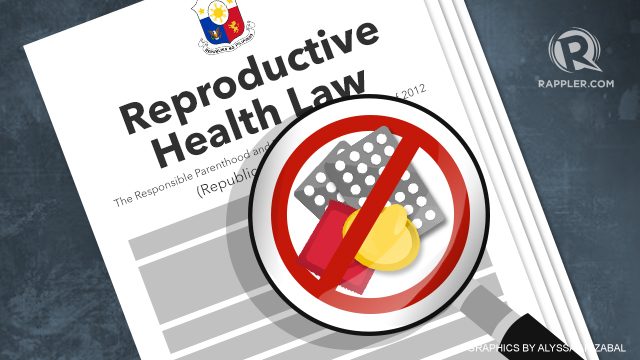SUMMARY
This is AI generated summarization, which may have errors. For context, always refer to the full article.

Ok, beshies. I know there’s a whole lot of sh•t going down right now, but seriously, we need to talk about the reproductive health (RH) law. Yes, again, because as you read this, our supply of birth control pills is running out.
And when I say “our,” I mean our supply as a country. So imagine going into a drug store and asking the pharmacist behind the counter for your pill and being told: “Sorry, po. Out of stock.” and hearing that line…forever!
That’s where we are headed, besh: the gradual elimination of birth control pills. You know, the daily pills we pop to deal with myriad girly issues: the painful period, the pimples, the polycystic ovarian syndrome (also known as PCOS), the irregular periods that came and go and, oh yes, choosing when we get pregnant.
Why is this happening? Because the Supreme Court issued a temporary restraining order (TRO) that effectively prevents the Food and Drug Administration from doing two things:
-
Re-certifying the product registrations of existing oral contraceptive brands
-
Getting a product registration for new oral contraceptive brands that are poised to come into the market
The Supreme Court issued this TRO last August 2016 when ironically, the Department of Health (DOH) made an appeal to the High Court to lift its earlier TRO on the contraceptive implants, those matchstick like tubes that are inserted in your upper arm and protect you from getting pregnant for up to 3 years. (I haven’t tried it myself, but the women I know who have tried it say that it sounds a lot more painful than it actually is.)
In effect, the Supreme Court expanded the coverage of the TRO that had originally just covered contraceptive implants.
The TRO is wreaking havoc on contraceptive supplies in the market. Data provided by the Commission on Population (Popcom) showed that 31% (or about 15 brands) of contraceptive certifications already expired as of December 2016. What we see of these brands in the market is just existing stock that will be available only while supplies last.
Another 31% will expire in 2017, 29% in 2018 for a total of 91%. That means that by next year, about 91% of brands certifications will expire. By 2020, only 2% of certifications will be valid. (READ: When you run out of birth control pills)
“That is the schedule of the gradual elimination of contraceptives from both government clinics and commercial drug stores as a result of this TRO,” said Dr Juan Antonio Perez, Popcom executive director.

Petition to lift TRO on contraception
President Rodrigo Duterte signed an executive order calling for the full implementation of the RH law last January – which is great, really.
But it is not enough to override the Supreme Court’s TRO because the executive branch is coequal with the judiciary. Only the Supreme Court can lift the TRO, but what we can do is tell the High Court not to take away our access to our birth control pills by signing this petition.
There are only 700+ signatures on this petition. C’mon, besh. Push natin ‘to!
We didn’t let Congress tax our beauty, why should we let the Supreme Court take away our right to contraceptives? – Rappler.com
Ana P. Santos is Rappler’s sex and gender columnist and Pulitzer Center grantee. In 2014, the Pulitzer Center on Crisis Reporting awarded her the Persephone Miel fellowship to do a series of reports on Filipino migrant mothers in Dubai and Paris.
Add a comment
How does this make you feel?
There are no comments yet. Add your comment to start the conversation.